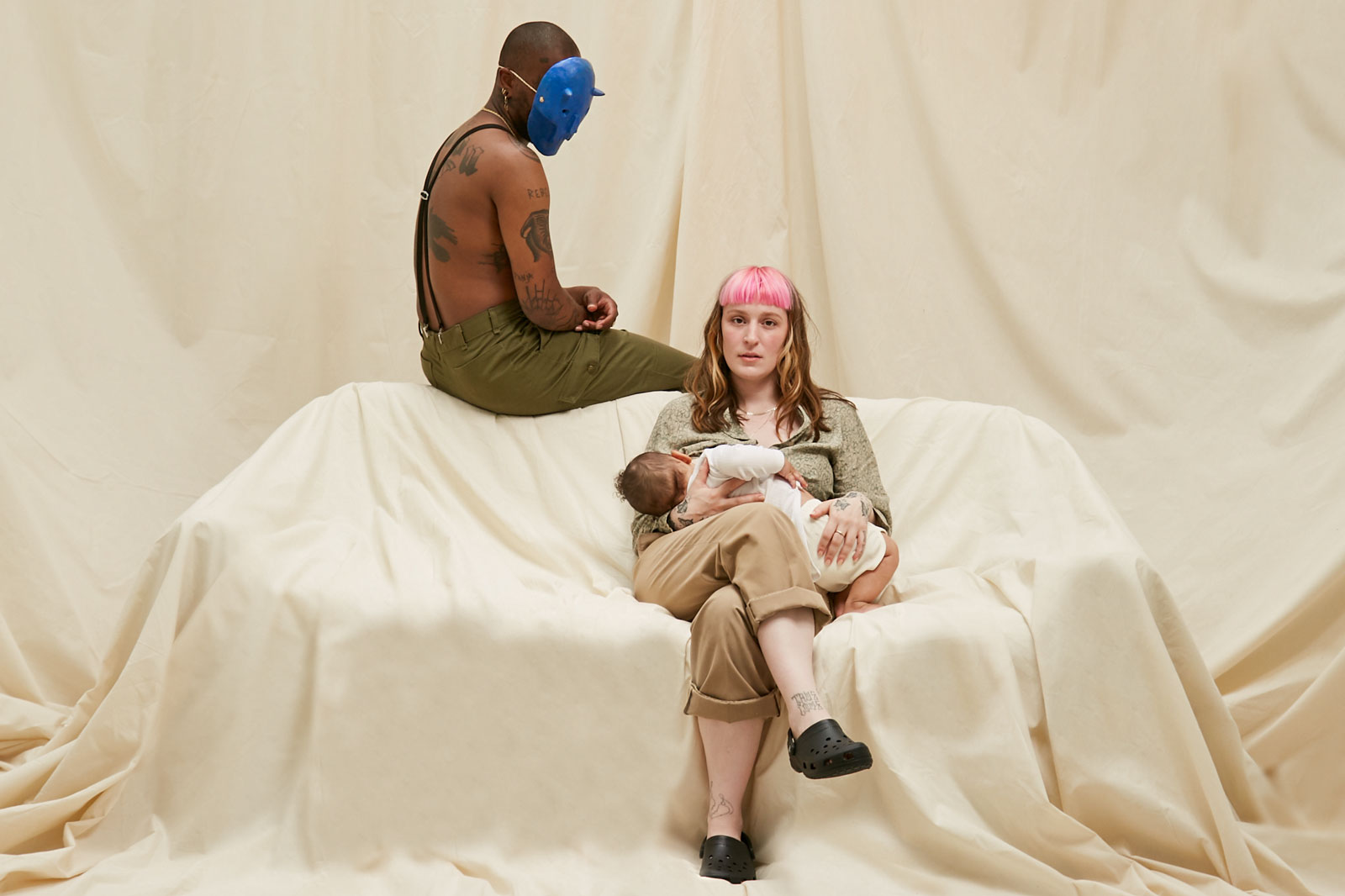The murder of George Floyd this spring prompted a wide resurgence in the Black Lives Matter movement in the US and far beyond.
Ray Fuego (he/him), front man of SMIB collective, and designer Florence Lamy (she/her) engaged with this deeply personal issue by raising funds for anti-racism charities in the Netherlands with their DIY initiative, ‘Zwart Lives Matter’.
Here they talk activism, parenthood and using your platform for social change.
TQTB: When did each of you first become aware that you were socially conscious?
Ray: I’ve always been socially conscious, though I wasn’t always aware of it. I was always faced with social issues because I’m Black and, as a teenager, I started to understand that people get treated differently. I was curious why. I read a lot, and listened to artists like OutKast, Wu-Tang, musicians my uncle liked. When you’re young, you listen to these musicians because it sounds cool but as I listen to them again now, I realise how many messages are in their lyrics.
Flo: As a white person, my story is exactly the opposite. I was never aware of race. I grew up in mostly white spaces – there was one Black kid in my school adopted by a white family. It took me moving away to London and, even then, a couple more years for me to even start to understand. When I met you, I realised the impact of us having discussions. One time, we were talking about people going to jail. I was arguing with you in such a white way, the whole time you’re trying to make me understand white privilege. My argument was that ‘after you go to jail, you can just turn your life around, why would you go back to jail?’ I didn’t see my own privilege.
From that point, I started to educate myself – my dissertation was on the portrayal of interracial relationships in the media. Researching helped me to see my place as a white woman with a Black man, how to navigate that, to understand the differences between preferences and fetishes, appropriating Blackness. I started to consider and reflect on how our relationship worked.
Once you read about race as a white person, it completely changes your perspective and life. It’s ongoing work. As well as academic journals, I read ‘White Rage’, ‘Black Skin White Masks’ and ‘Fade to Black and White’. Malcom X’s autobiography is what triggered me to read everything I could.
I remember one specific moment as I was writing my dissertation, I met with my professor. I said ‘so I’m reading this text, and this book and, you know… I think I’m racist’. He looked at me and replied ‘there you go!’ It was such an illumination. Until you admit that you’re racist, how can you move past it? How can you start checking yourself? I was raised with prejudice – bombarded by the media. My parents are great parents but they took a colour blind approach. That specific moment with my tutor was when I could really start to work on myself. As a white person, you can’t consider yourself an ally until you reflect. It starts with yourself.
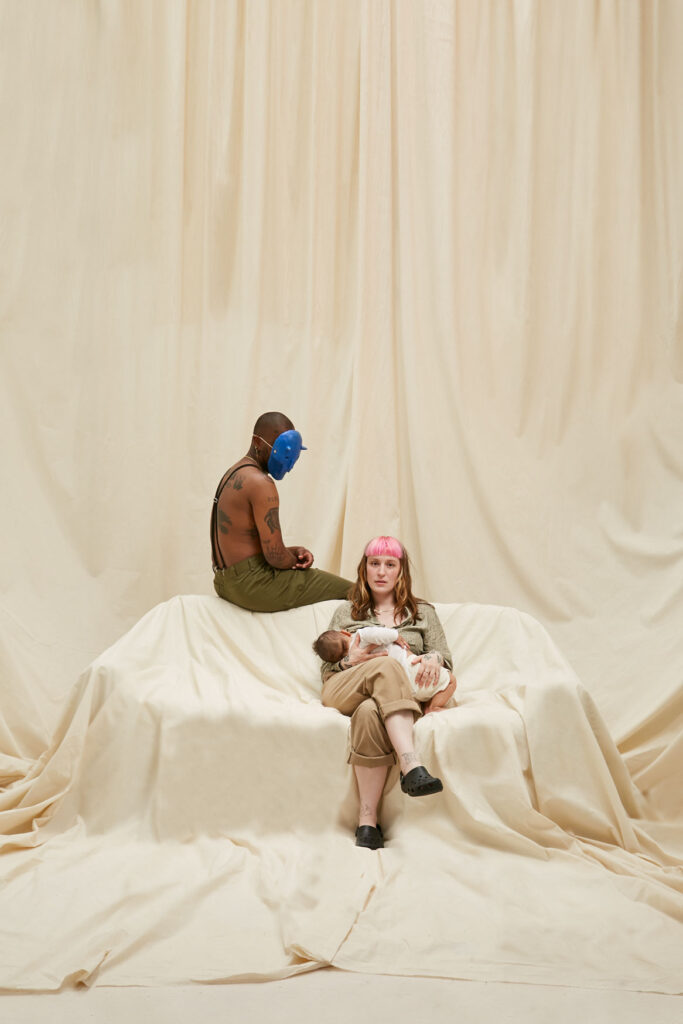
TQTB: What role does activism play in your dynamic as a couple? Is it something that’s grown over the course of your relationship?
Ray: It started with arguments because we really come from extreme opposite worlds. Like, I couldn’t go to Canada to be with your family – it was just difficult for me, I was broke…
Flo: I think you could have come but you would have felt uncomfortable. My family is from the suburbs and not so open minded as there’s not much contact with blackness. There’s work and education to be done within the family. My parents are great and I can see my mum doing the extra work to educate herself, which I love to see.
Ray: I always had a different mindset back in the day. I was really radical in handling myself and my emotions. I was so deep in my own reality that it was hard to realise that not everyone thinks the same – I thought that everyone understood how I saw the world.
Flo: Once I started reading, our discussions became more about me sharing what I was learning with you, which I think gave you a more academic way of looking at your life.
Ray: I didn’t know how to place or articulate things. You’d ask me stuff and I’d try to go into more detail. I’m not a dumb guy but everything was scrambled in my mind.
Flo: No, of course, it’s really different to live and experience something versus learning about those experiences from an academic angle.
Ray: As a couple, these kinds of discussions are kind of like brushing teeth. We don’t really think about it, we just do it. It’s a natural part of how we work.
ONCE YOU READ ABOUT RACE AS A WHITE PERSON, IT COMPLETELY CHANGES YOUR PERSPECTIVE AND LIFE.
FLORENCE LAMY
Flo: It’s more now about how we raise our baby, trying to share and educate more. I think we work better as a team now. Before, we were more like individual players. You were living your life’s experiences as I was working on myself. And yes, we still have heated discussions about different subjects like rape culture.
Ray: Rape culture is something that men are becoming more aware of now. I believe that before you can change the world, you have to change your immediate environment. There’s a lot that I don’t know because I’m not a woman. You tell me where I’m lacking, in what I say or think, before I talk to people about this. I speak to you first because I don’t want to be ignorant.
Flo: You know, I can tell you from working in a mostly male environment and having these conversations over and over, it’s really difficult. It’s weird because you want your voice to be heard when it’s about you, but somehow when a woman tells all these guys how it really is, it’s in one ear and out the other. They’re not ready to believe you or listen. There’s a lot of ego running around. It’s the same with white people and racism, saying that they don’t see colour.
Ray: You have to listen to the people being oppressed. That’s the only way that you can help. Your personal preference and opinion don’t matter. You have no opinion in these situations. I had a really hard time with that. Sometimes I had to ask myself ‘why do I even feel this way? Why am I being defensive about this?’ This shit has nothing to do with me directly, but indirectly it does have to do with me. It’s as simple as that.
Flo: You try to diffuse what someone else is saying to remove your own accountability and avoid feeling guilty. That’s why people say ‘All Lives Matter’. They can’t handle facing how they’re involved in the problem. You want to erase yourself from the problem.
Ray: I knew that I had to have difficult conversations because there are a lot of men in my circles and in SMIB, and I was like ‘fuck it, I have to do what I have to do’. If I want to do better, I have to keep the same energy for everything that has to change. I can’t only use that energy for shit that affects me personally.
That’s how I brought the conversation to my friends. As a group, we have to have our minds straight and stand behind what we say 100%. Not only with Black Lives Matter. With everything.
Flo: I’m realising now how much we ignore so many other groups. Disabled people, the LGBTQI+ community – and the Black experiences within these groups. We ignore intersectionality.
Ray: I had this conversation with my dad. I have the feeling that the older generation is more homophobic, you know? Now he’s starting to understand intersectionality. He gets that I can’t fight for only one group, I have to fight for everyone. He still has a long way to go, as we all do.
Flo: When there’s that spark of awareness, the biggest part of the job is done. To get people to understand that there’s a problem is the biggest part of the work. If they don’t see, they don’t know it.
Ray: You know, when somebody says something in my surroundings that doesn’t sit well with me, I’m like ‘don’t say that’. I don’t even have to discuss with you why you shouldn’t say that – just don’t say that. The other day, some white guy was talking to me about black people and casually said ‘n****r’. I confronted him and said ‘yo, don’t say that.’
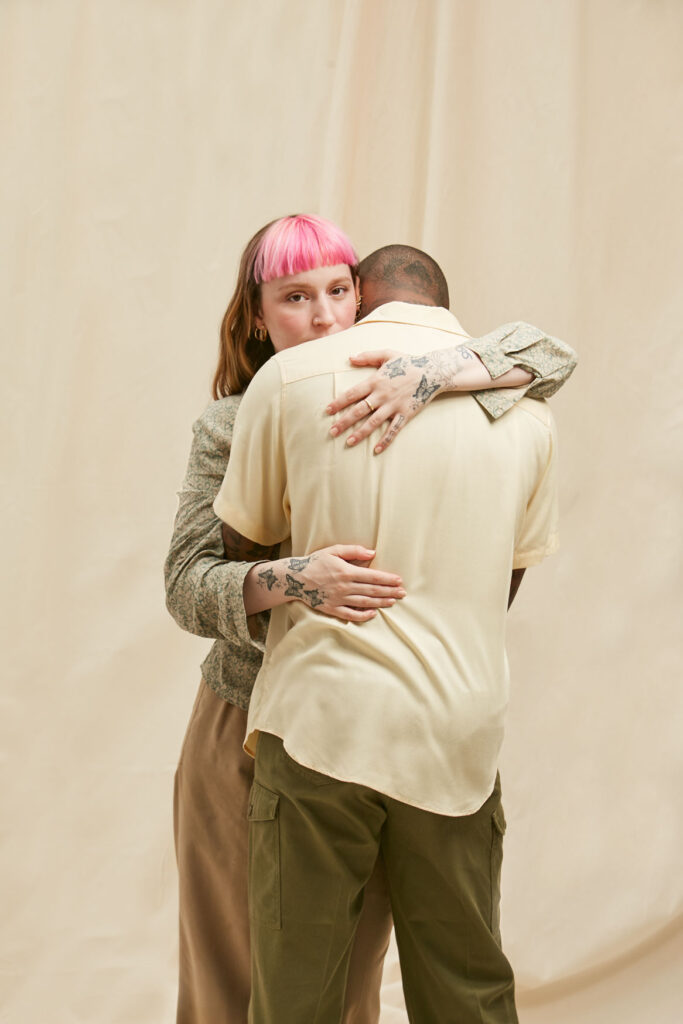
TQTB: Speaking up against ignorance is one form of activism. For you, what other forms can activism take?
Ray: Check people around you and have those uncomfortable conversations. You don’t have to fucking discuss something with someone who doesn’t want to understand – I don’t spend my energy on that. I lose too much of myself. I don’t even get agitated anymore because I feel like I’m so far ahead spiritually that I can’t get mad at people for not understanding. It gives you a certain peace of mind when you accept that some things can’t change.
Some people are not here to make a change. Not everyone is here to be light. You have to have darkness to have light. Other people are not on the same path in life as you.
I don’t really have hatred in my heart anymore. I said to you, when it’s my time to go, I want no hate in my heart. Peace isn’t something external, it’s within you. I’m so calm now that, even when one of life’s blizzards comes along and things settle again, I’m back on being chill. I don’t get upset about stuff like I used to. Even knowing which conversations to engage in – some people talk because they like the sound of their own voice. They’ll say ‘let me play devil’s advocate here.’ Why do you want to play devil’s advocate? I don’t even want to hear what you’re going to say. Keep that devil’s advocate over there, bro.
Flo: I’m still finding my form of activism, and trying to do it continually. I’m haunted by times when I could have spoken up and didn’t. I have so much guilt for not speaking up, and not just about race. Even in trying to stand up for myself. That’s part of being a woman – you don’t want to ruffle feathers so when you’re in a situation of power, it’s hard to speak up because of a fear of disruption. You don’t want to cause problems.
Ray: It’s like being black.
Flo: Education is activism. I have a lot of white friends who are mums. I share books with them to make sure they’re thinking more about diversity. My sister’s a stepmum and she’s bought all these Barbies. She got a wheelchair Barbie, a Black Barbie, an Asian Barbie, she’s bought the Rosa Parks kids book. I see her bringing diversity to the attention of her stepkids.
Your job every day as a white person is to try and share something, some information. Even if only one person sees, it might spark something in them. That’s a responsibility that white people have to take on.
For us, activism has to be an organic process as we’re not experienced in the field. Once we spend time with people with more experience who can give guidance, then we can have more impact beyond our immediate circles.
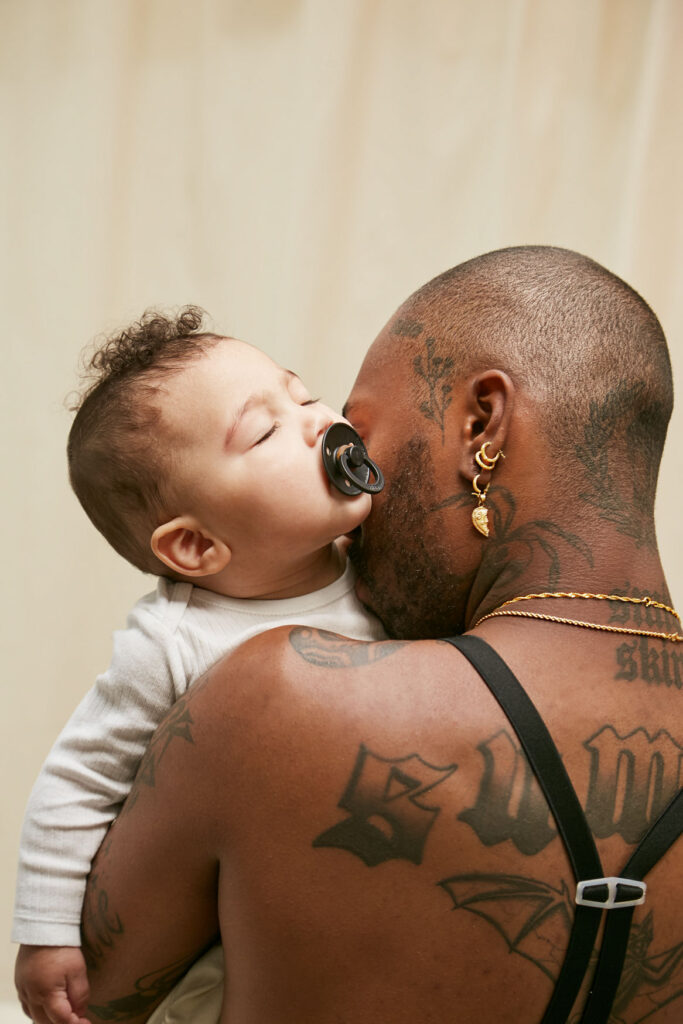
TQTB: What’s it like balancing parenthood with activism? Has it changed how you view or channel this work?
Flo: There’s definitely a different motivation now we have a son. It’s become more serious on a personal level. As soon as you have a child, your empathy levels rise. Educating other mothers is how I can change things the most around me.
Ray: Parenthood hasn’t really changed my outlook on activism. I’ve always been like this. I’m not as reckless anymore because of him. I peek at him when I come home.
TQTB: ZWART LIVES MATTER CAME ABOUT AS A REACTION TO THE MURDER OF GEORGE FLOYD. HOW DID THE IDEA COME ABOUT TO SELL THE ARTWORK TO YOUR ALBUM ‘ZWART’ TO RAISE FUNDS FOR LOCAL BLACK CHARITIES?
Ray: The whole thing was activated because of Black Lives Matter. It was a dark, weird time. A really dark period.
‘Zwart’ is a political album in that it’s about how I perceive the world as a young Black man who’s kind of lost and how emotional trauma has affected my everyday life. Texas [Schiffmacher] created the artwork for the album. She called me saying she wanted to do something.
Flo: She wanted to do her part, so she came over and we had a brainstorm to figure out what we could do.
Ray: You did all the admin in one day. The PayPal, Instagram, email. Lit. You’re a machine.
Flo: I checked Instagram, no one had taken the name ‘Zwart Lives Matter’ so I took it quick. You and Tex made the video quick, same day, and a ‘Zwart Lives Matter’ song. Starting to see the positive responses, I was thinking maybe we’d make a €1000.
Ray: We made that in a day.
Flo: Even within a couple of hours. It was a good start but I’m not big on Instagram so I couldn’t keep up! A lot of people in the Netherlands don’t have PayPal so they needed another payment option. It was sticky, I had to keep track of DMs, send Tikkies, match those to names and addresses… It was a whole mess! In the end though, we raised over €4000 for The Black Archives, Black Queer Trans Resistance and KO Zwarte Piet.
To know that you can do a little something to help, to see that you can have power and a voice… I don’t know if it was important for you, but it was for me.
Ray: Speaking about this shit every day – at a certain point – it feels like you don’t really see things change. This time, I really felt like I could help. I want to do this – people know I’ve always been about this, no one’s doubting.
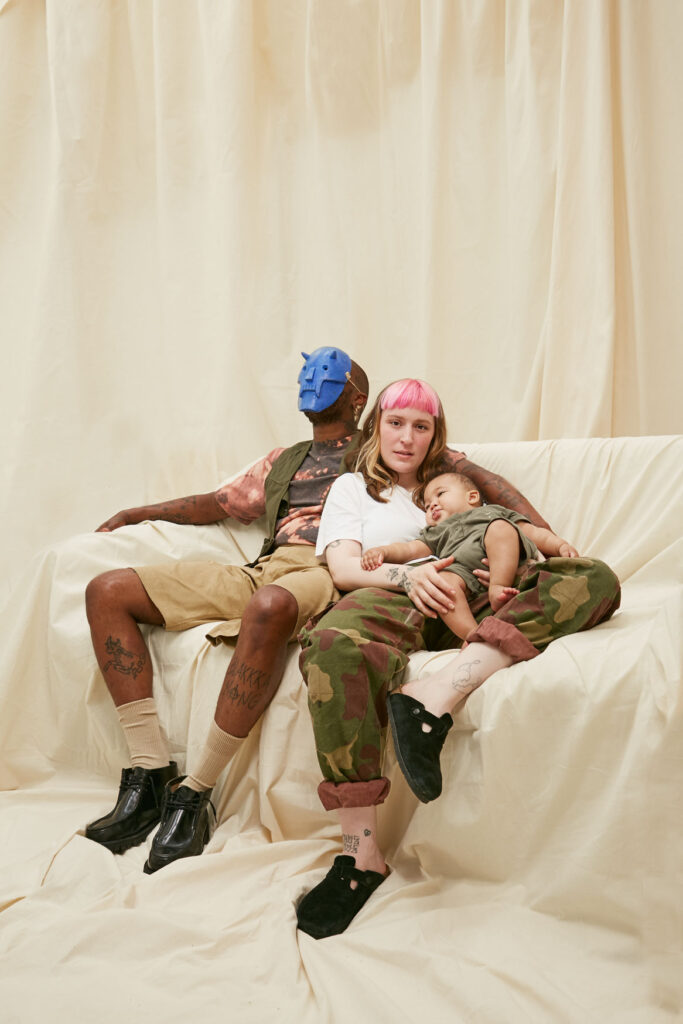
TQTB: Ray, you’ve been consistently vocal about race and race issues in the Netherlands. Do you think that people understand the personal depth of this specific project?
Ray: I don’t think so, but that’s not my goal. It’s something so broad that it’s kind of open for your own interpretation. All people need to know is that it’s pro-Black. Everything we do, we want the world to be a better place. This is my priority. In the Netherlands, I feel that young people with a platform, like mine, aren’t using them the right way. They don’t see this as a problem that’s bigger than themselves, so I hope this motivates younger kids by showing them that they can do something independently, without any help.
If you have 50,000 followers on Instagram, you know that people look at you. What are you influencing, bro? What’s the message you’re spreading? People should be more conscientious about how they use their platforms.
The most disgusting thing was to see people who were like, ‘oh, I’m not going to talk about racism’, people who I know in the industry. They act like they understand but now, in times of need, they don’t do nothing. You don’t have to shake my hand when you see me – I’m not going to shake your hand.
I ALWAYS HAD A DIFFERENT MINDSET BACK IN THE DAY, I WAS REALLY RADICAL IN HANDLING MYSELF AND MY EMOTIONS.
RAY FUEGO
Flo: It’s shocking sometimes to look around you and realise that people are showing their true colours. It’s so easy and quick to spot the problematic shit.
Ray: The craziest shit is that, deep down, you already knew, you just don’t want to acknowledge it. I had it with a lot of people. It used to be a case of if you don’t say that shit to my face or you don’t act dumb to my face, then I don’t have to slap you. Now I’m at a point like nah, man. Even with fucking microaggression shit, I can’t let that shit slide no more.
I’m not gonna fight everyone every fucking day. I distance myself from people who aren’t on the same shit that I’m on. I don’t give them my energy. I want to surround myself with people with the same goal as me. We don’t have to take the same route to the goal. But eventually the goal has to be the same, otherwise I just can’t be around you.
Flo: And not everyone grows at the same time. Maybe in a year, people who let you down now will be in a place where you can talk with them again. If I think about where I was four years ago versus today, we’d have had a hard time talking about these things.
Ray: Thing is, you didn’t make changes because everyone around you was doing it. You made the change because you felt that it was important.
Flo: There’s a lot of performative activism.
Ray: Yeah, that’s even worse, a lot of people are jumping on the bandwagon. I’ve been talking about this shit and people didn’t take it seriously. I was always seen as the radical guy, you know. “Crazy Ray” was always talking about this shit-blah-blah-blah.
A lot of fake conversations came up recently and it felt like I was in a soap or a movie. I’d be saying ‘how can you think that anyone will listen to what you’re saying and take you seriously when you’ve not been consistently on this?’ People are so cringy. Go read a book, come back. Digest it, because you don’t know how to apply it to your life. Then you can come back to talk to me because, right now, you’re just a little boy to me. I should kiss your forehead.
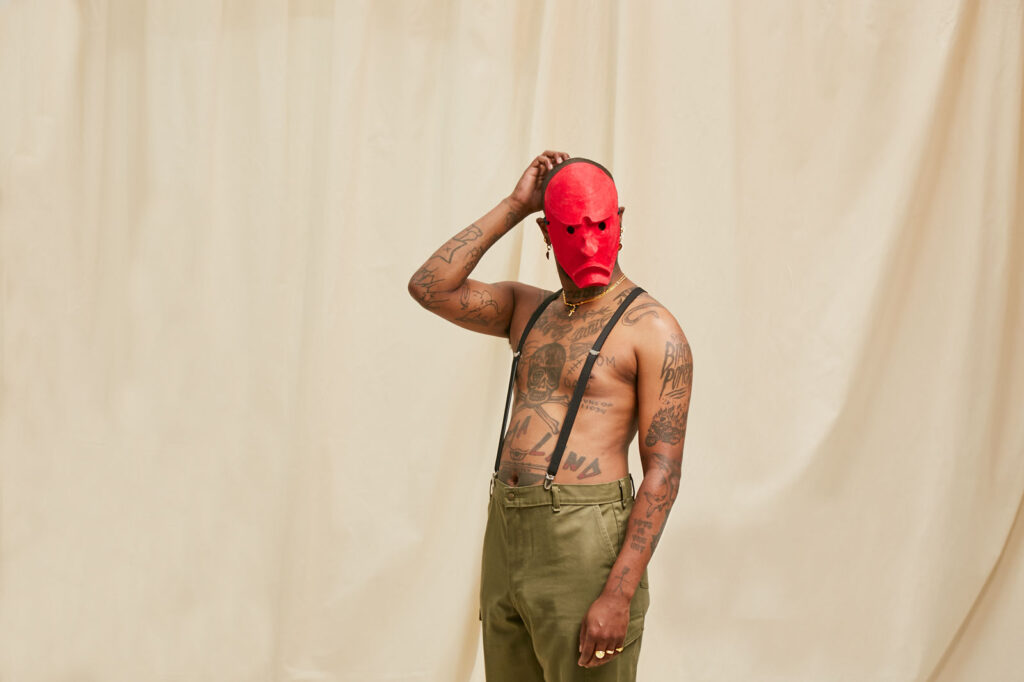
TQTB: As underrepresented minorities (based on race and gender), we often have our narratives told for us. ‘Zwart Lives Matter’ feels like a rebellion – not asking permission and instead being active in standing against a struggle. What impact do you hope ZLM can have in the broader discussion on race, gender and representation in the Netherlands?
Ray: I think Zwart Lives Matter is a stepping stone to get things moving. Eventually, we’ll build more because the people around us take us seriously. Once you’re surrounded by people who can help you to make more things a reality, that has a powerful impact. One thing I want to do is change the way kids in the Bijlmer are educated. Ideally I’d like that to happen everywhere, but the Bijlmer is where those changes need to happen first. I’d like how history is taught to change, as well as a better understanding of what these kids are dealing with. They told me that I was a problem child because they didn’t understand my background and culture, different personalities. What works for one kid won’t work for another, so there needs to be more flexibility. They’re not robots, these kids are living people. There are a lot of stepping stones to get us to that point.
Flo: I see organisations in London and other places that are really inspiring, like Black Minds Matter. To me, that’s something that’s needed everywhere – to give people of colour and Black people access to therapists who are Black or POC themselves. You can’t have a Black person share their trauma with a white therapist and have them understand and know what treatments will work properly for you. The Black Curriculum, another initiative in London, is a project to bring more balanced history and representation to the classroom. Long term, these are some of the things that I’d like to see. Impactful projects with a lasting effect, that’s really key.
I’d like to build a recreation centre, you know, like how OVO has in Toronto. A centre where kids can go into a studio. It’s a safe space where they can hang out and learn, that also feels cool. If someone like Patta runs it – people from the same community these kids are from – then they trust it, see the authenticity and want to actually hang out there. Then it becomes a great outlet for them.
Ray: We can do it. I don’t see it as something that should be that hard. We just have to put our heads together and do it. The place has to look good, feel warm and welcoming, everyone needs to know that it’s a safe space.
Flo: You’re levelling up when you step in, not levelling down. Just by walking in, these kids should feel empowered.
Ray: A rec centre would bring in a different approach to education and life skills. Say, sports days – exercise is super important. Knowing how to feed yourself. In the Black community, people just eat shit because it’s cheap, but even food on a budget can be healthy. If you teach kids this kind of stuff early, they know how to do it for life.
The school system doesn’t teach you how to do that – you’re not made to go and work on yourself. Summer schools where there’s an educational element every day would be a way for us to change lives for the better. If you can help someone to learn daily, you know you’re doing the right job.
Follow Ray Fuego: @therealbabyfuegod
Follow Florence Lamy: @baby_floflo
Follow ZLM: @zwartlivesmatter
IMAGE CREDITS:
Photography: Obi Mgbado
Retouching: Omar Rosalina
Lighting: Obi Mgbado
Art direction: Colinda Bijsterveld
Wardrobe: Concrete Matter, Crocs
Hair and make-up: Xiu Yun Yu
Production manager: Marie-Anne Leuty
Location: The Brouwersgracht Studio

